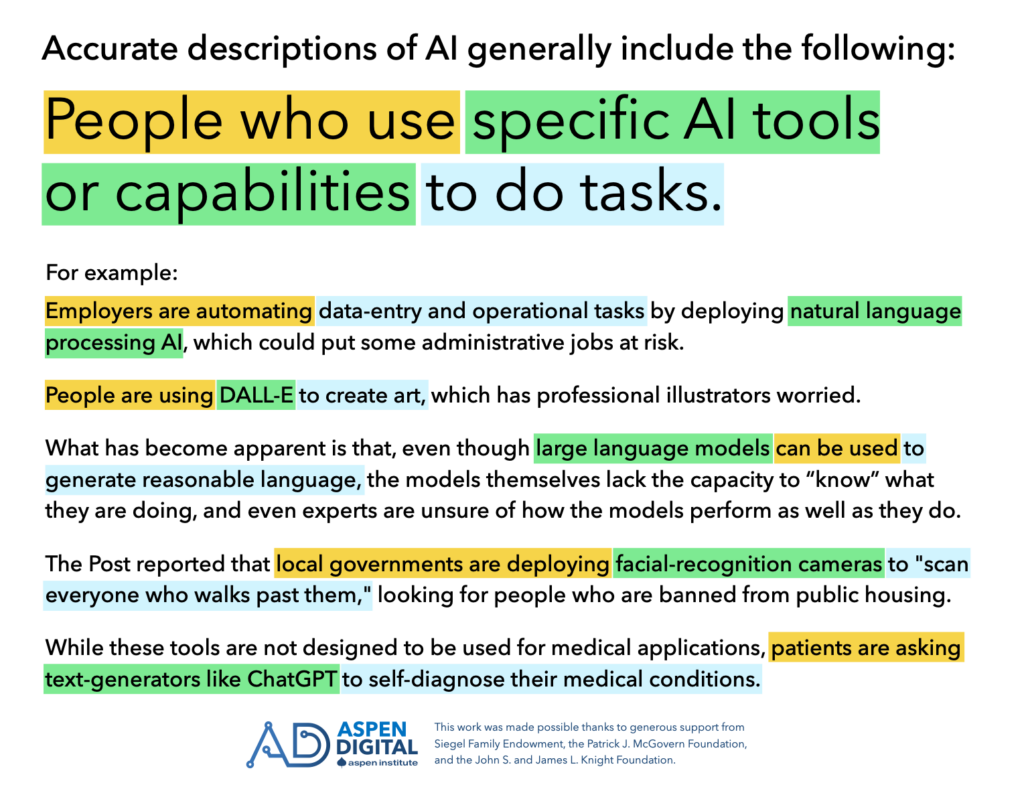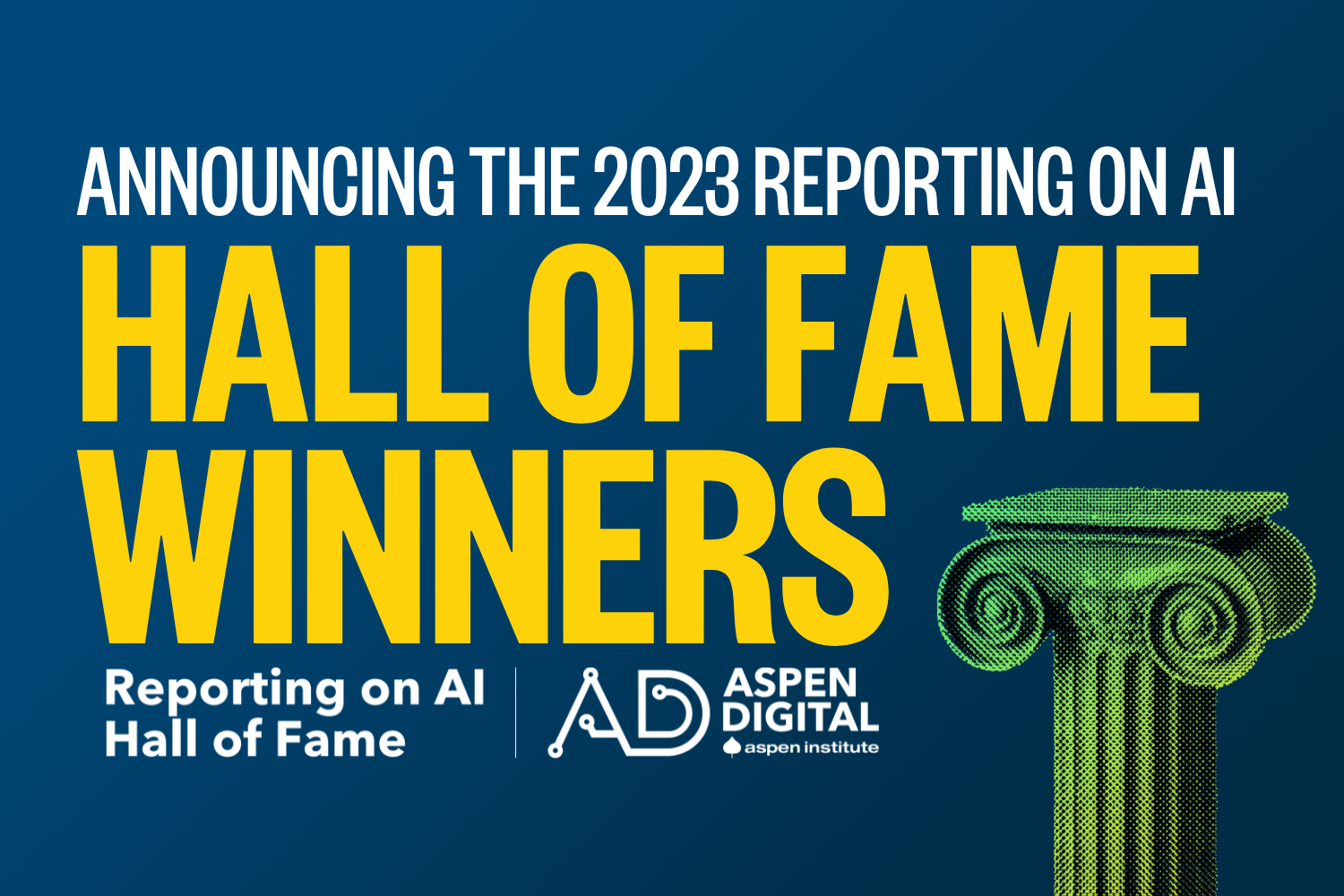The Challenge
There are plenty of examples of bad writing about artificial intelligence in the world, and it can be hard to know where to look to get it right. As you read this, people around the world are learning about these tools for the first time. They need help finding the words to describe these complex systems in an accessible, accurate manner.
Our Approach
We called for public submissions of great short descriptions of AI in action from 2023.
Through the release of educational primers on AI, public cross-sectoral events, a lesson plan on AI and media literacy, and this Hall of Fame, we’re helping journalists, civil society organizations, and public policymakers communicate better about these headline-grabbing technologies.
Submissions for the 2023 Reporting on AI Hall of Fame closed February 19, 2024.
Halls of fame can be exclusionary. We use this term not to suggest that the descriptions selected to be featured on this site are the only great examples out there but, rather, to celebrate good writing and create a repository of model sentences for others to learn from. We are proud to highlight examples from a wide range of English-language publications from around the world.
2023 Winners
Below are the winning excerpts for the 2023 Reporting on AI Hall of Fame. They were selected from hundreds of candidates representing over 80 publications from around the world. These excerpts showcase recommended practices for journalistic coverage of AI: they communicate clearly and realistically about these technologies as tools that are used by people.
Winners are presented by date of publication.
Marissa Gerchick, Tobi Jegede, Tarak Shah, Ana Gutiérrez, Sophie Beiers, Noam Shemtov, Kath Xu, Anjana Samant, and Aaron Horowitz writing for the ACLU, March 14, 2023
Viola Zhou writing for Rest of World, April 11, 2023
Isaiah Smith writing for The Famuan, April 21, 2023
Michael Atleson writing for the FTC Business Blog, May 1, 2023
Molly Sharlach writing for Princeton University Electrical and Computer Engineering, May 30, 2023
shirin anlen and Raquel Vazquez Llorente writing for WITNESS, June 28, 2023
Mack DeGeurin writing for Gizmodo, August 15, 2023
Aaron Sankin and Surya Mattu writing for The Markup, October 2, 2023
Haleluya Hadero writing for The Associated Press, November 2, 2023
Angela Spivey writing for Duke University School of Medicine, November 13, 2023
Susanna Vogel writing for Healthcare Dive, December 13, 2023
Jeremy Wagstaff writing for F&D Magazine, December, 2023
Anna Waterman and Stephanee McCadney writing for Quill.org, 2023
See AI 101 for more on
How to Talk About AI

Our Rubric
We look for short descriptions of the use or creation of an AI tool that:
- Use accessible language to convey meaning and define terminology where appropriate.
- Emphasize human actors (whether as individuals or organizations, or in professional roles) when describing the creation, deployment, and impacts of AI tools.
- Employ action verbs appropriate to non-living systems (e.g. “generates,” “produces a representation,” or “processes,” rather than “writes,” “believes,” or “understands”).
Note: while generally best avoided, personifying terms may be acceptable when clearly used in simile or within “scare quotes.” - Describe current capabilities of AI tools in a factual manner, distinct from marketing claims.
Short descriptions should be 100 words or fewer, and come from a nonfiction source, such as a news article, blog post, or research report.
The Reporting on AI Hall of Fame announced at Aspen Digital’s Talk Better About AI event
Acknowledgements
This work was made possible thanks to generous support from Siegel Family Endowment, the Patrick J. McGovern Foundation, and the John S. and James L. Knight Foundation. Special thanks to Tom Latkowski, Diego Burga, Eleanor Tursman, B Cavello, and our Aspen Digital Team. This work also would not have been possible without everyone who submitted excerpts to the Hall of Fame. Thank you.
Share your thoughts
If this work is helpful to you, please let us know! We actively solicit feedback on our work so that we can make it more useful to people like you.



